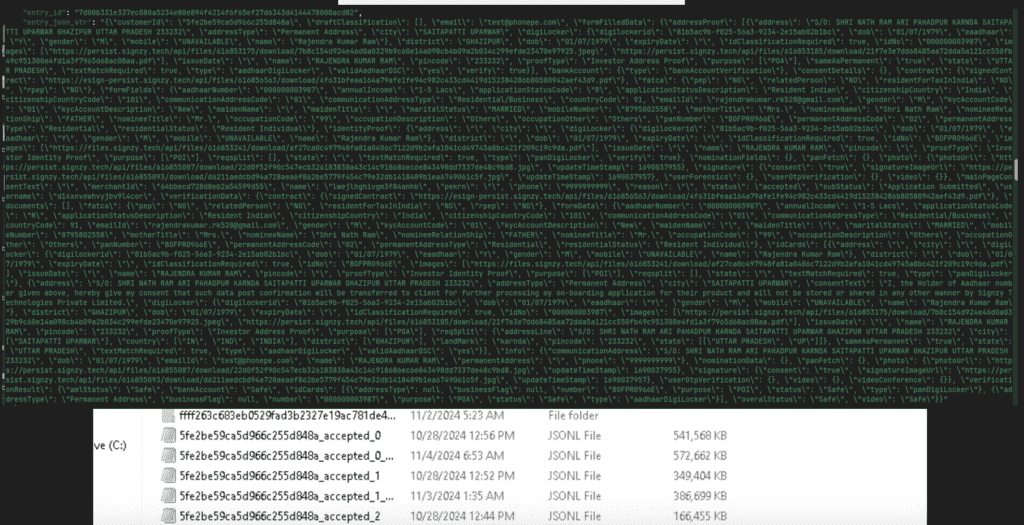
SBI Mutual Fund Data Leak Details
The hacker has revealed that the compromised data includes 166GB of investor information specific to SBI Mutual Fund customers. The dataset reportedly comprises:
- 452,000 documents: These include scanned images and PDFs of customer identification files.
- 61,600 customer records: Detailed data stored in six JSON files, allegedly containing critical personal and financial information.
This leak represents a major security lapse that could have severe implications for affected customers, including identity theft, phishing scams, and financial fraud.



A Growing Threat
The threat actor claims to have notified SBI of the breach, but the alleged lack of response prompted the decision to list the stolen data for sale. This incident raises serious concerns about the security practices and responsiveness of financial institutions, especially those entrusted with handling sensitive customer data.
Key Risks for Affected Customers
The compromised data includes a wide range of sensitive information that could be misused for:
- Identity Theft: Fraudsters could exploit leaked KYC documents for illegal activities.
- Financial Fraud: Personal details could be used to gain unauthorized access to financial accounts.
- Phishing and Scams: Criminals may use customer information to craft convincing phishing schemes.
Calls for Urgent Action
This breach highlights critical vulnerabilities in third-party vendor management and cybersecurity protocols. Financial institutions, including SBI Mutual Fund, need to act swiftly to:
- Enhance Data Security: Implement advanced encryption, regular audits, and penetration testing.
- Secure Vendor Networks: Ensure all third-party providers adhere to strict cybersecurity standards.
- Improve Incident Response: Establish a transparent and efficient protocol for addressing data breaches.
- Communicate with Customers: Promptly inform impacted customers and guide them on safeguarding their accounts.
Lessons for the Industry
The SBI Mutual Fund data breach is a wake-up call for the financial sector. It underscores the pressing need to bolster defenses against increasingly sophisticated cyberattacks. Companies must prioritize cybersecurity, not only within their systems but across their entire vendor ecosystem, to ensure customer data remains secure.
Conclusion
As investigations into this breach continue, the affected organizations must take immediate steps to mitigate risks and restore customer confidence. The incident serves as a stark reminder that in today’s digital world, robust cybersecurity measures are not optional but essential.
The SBI Mutual Fund data breach should prompt financial institutions across the board to reevaluate their data protection strategies and safeguard their systems against future threats.

